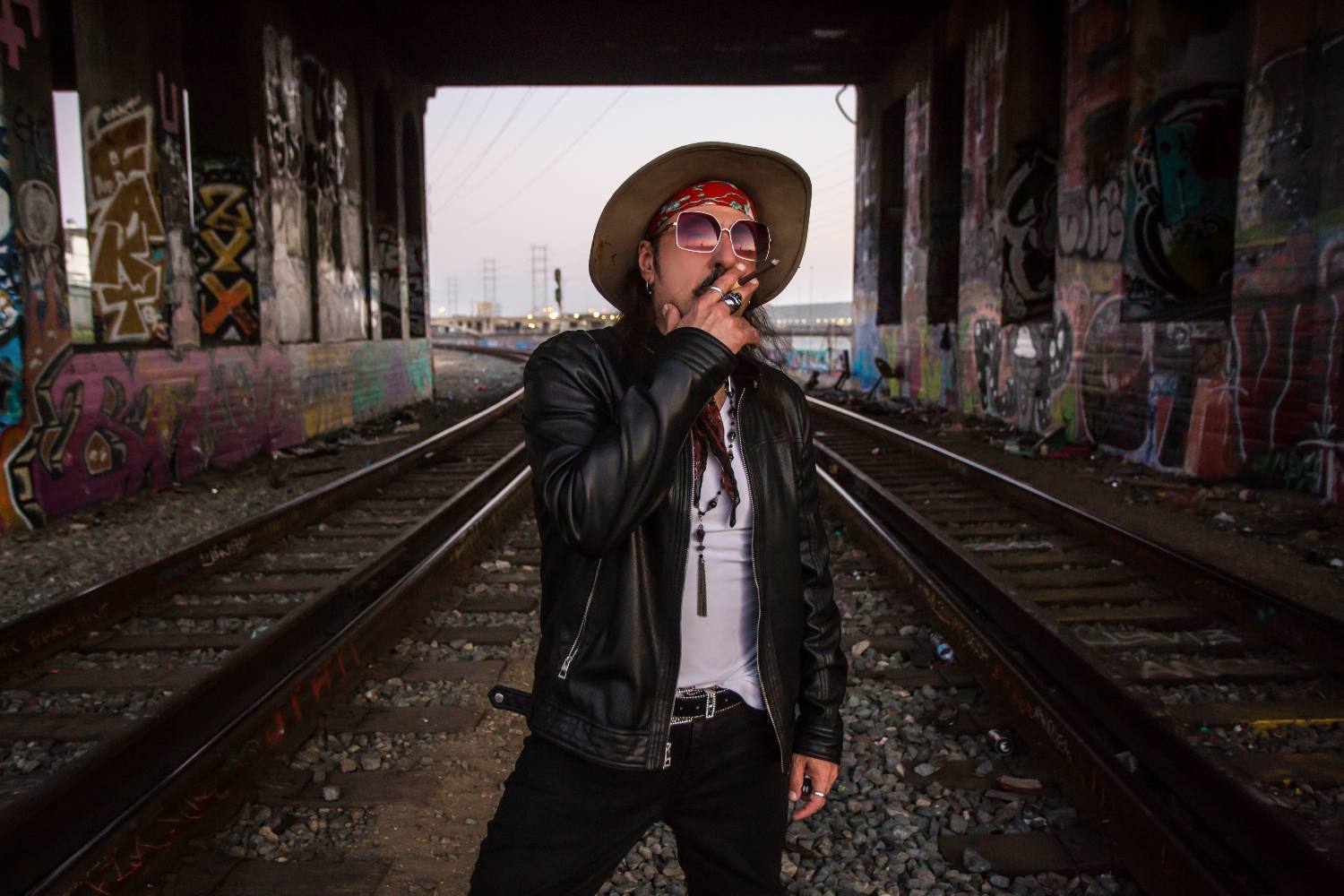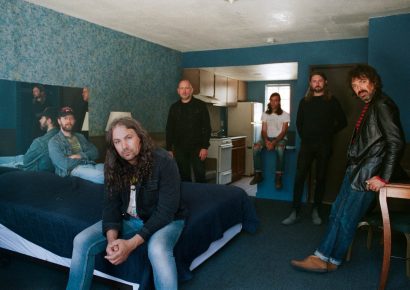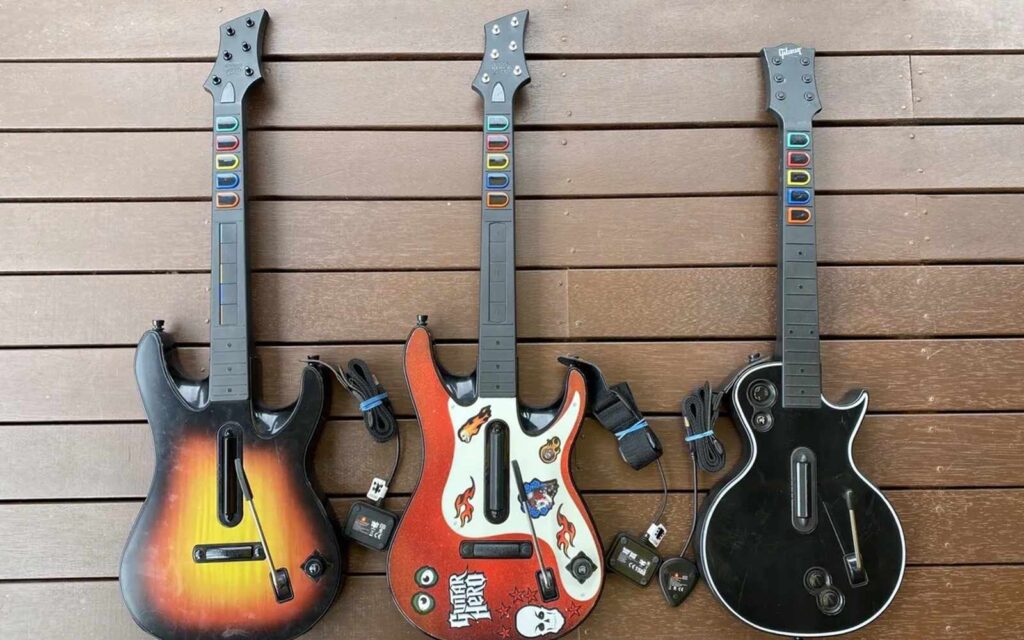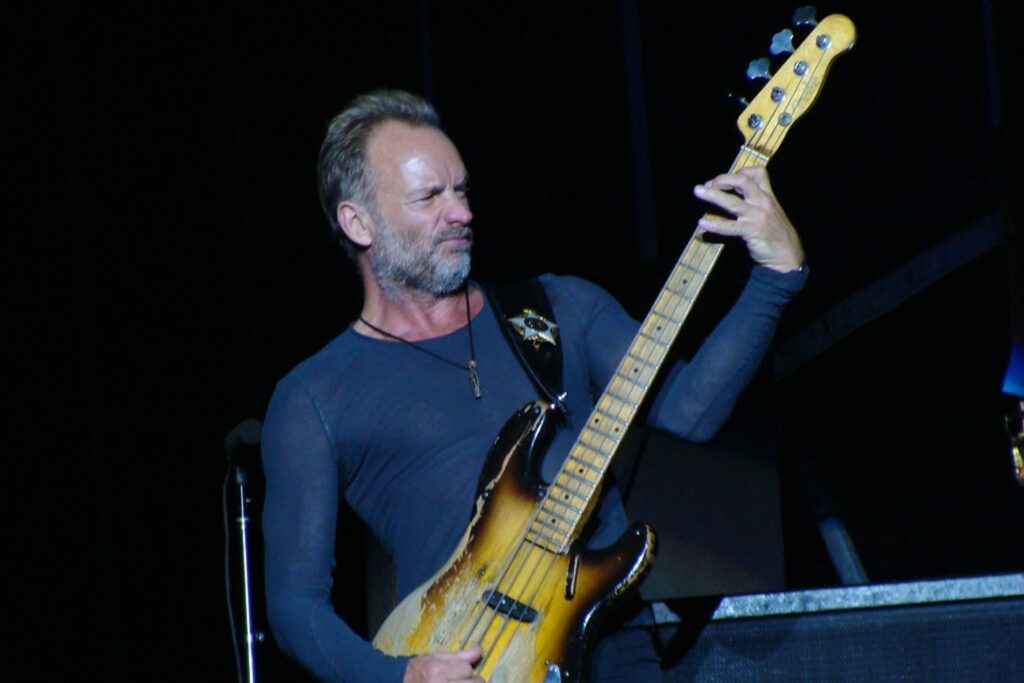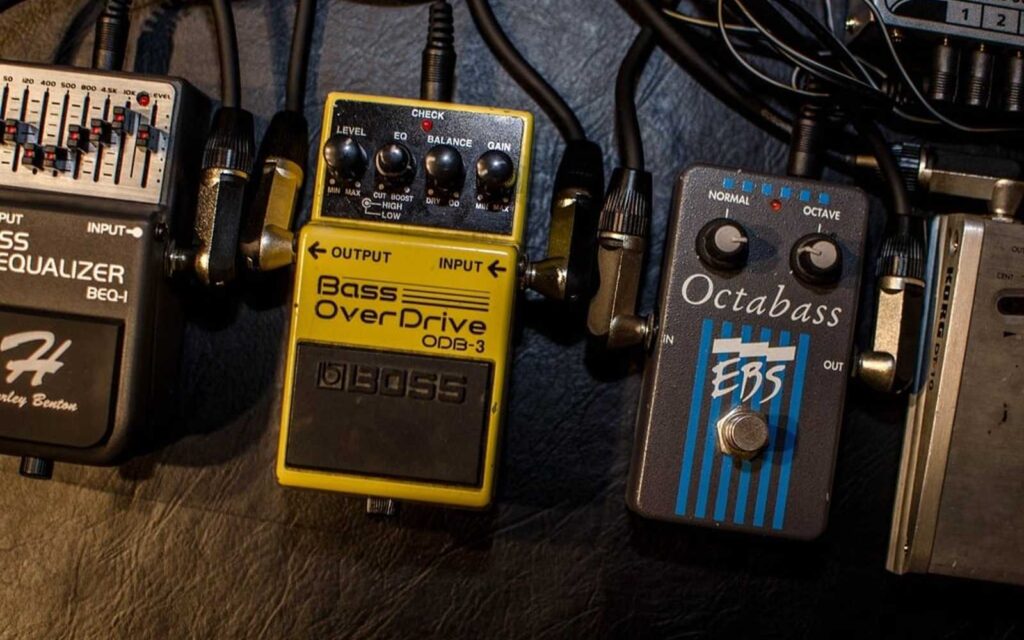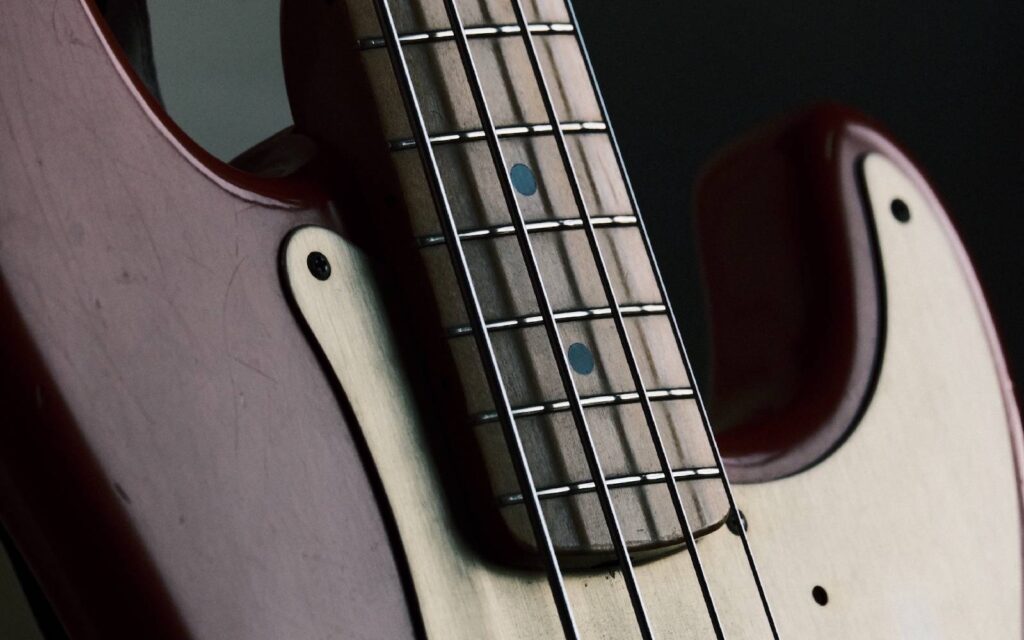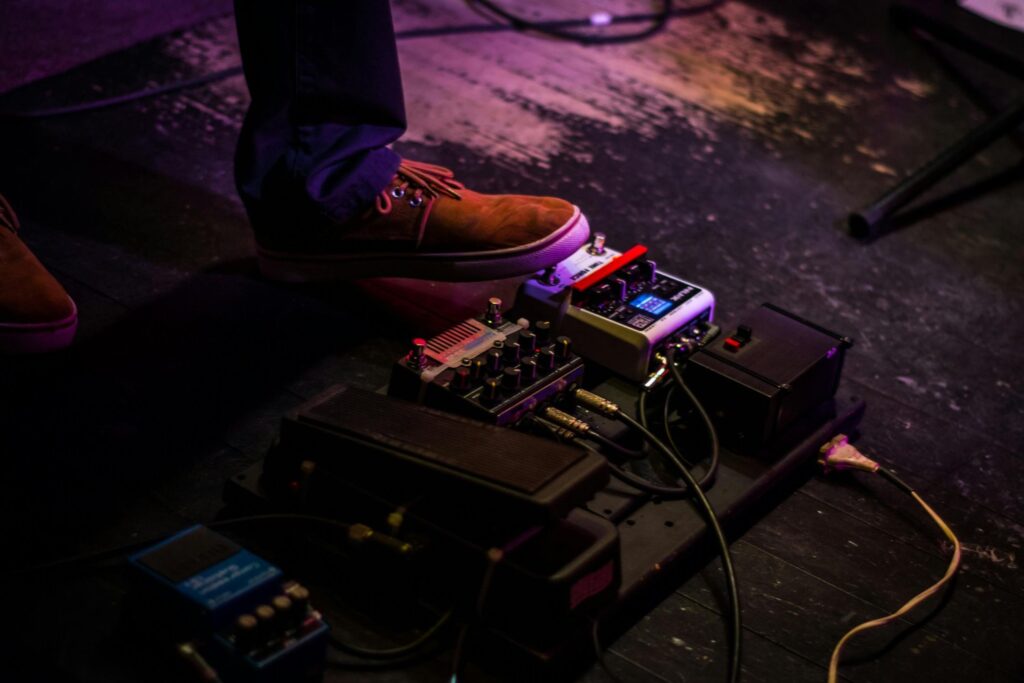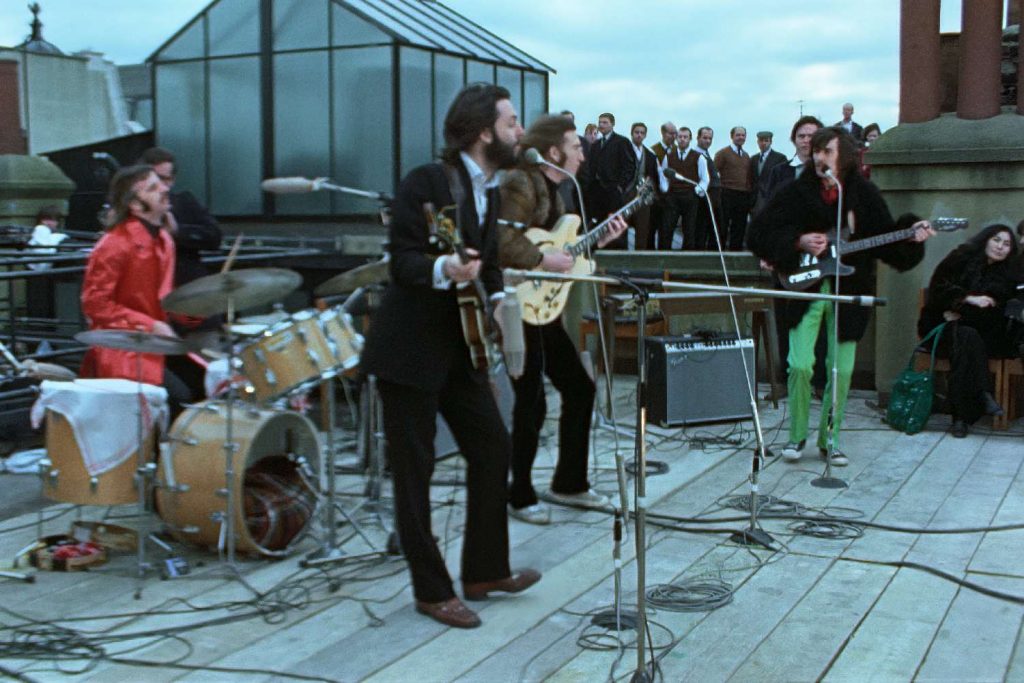With a look at his influences and gear used during recording the album.
Fabrizio ‘Fab’ Grossi is an extremely talented musician, producer and songwriter whose list of collaborators include Slash, Gary Clark Jr, Steve Vai, Joe Bonamassa and even the funk legend George Clinton!
Read up on all the latest interviews, features and columns here.
The new project features Fab taking the brunt of vocals which is a first for the artist with the project described by him as “balls out” to keep up with “all the other great monsters out there”. The bluesy, funky and rocky music has a hazy tone which compliments Fab’s soulful vocal delivery. Check out the interview below where Fab tells all about his influences and how the new record was produced and recorded.
First off, how are you doing at the moment?
Hi Sam, I am ok, trying to get all the ducks lined up for 2022, when, hopefully, I should be able to go back on stage with Supersonic Blues Machine, but also with Soul Garage Experience. It has been 2 crazy years.
The lockdowns, the business disruption, and basically almost zero work, since everything that I had lined up was either based on live shows/touring, and on a two large studio productions that would have involved people flying into California from around the world. Don’t get me wrong, I am happy, because I had the opportunity to finish the next Supersonic Blues Machine record, I was able to also finish and release Soul Garage Experience and started a new video production company with some long time collaborators, so hopefully I can get back soon to work on soundtracks too.
Did your recording process change in light of the lockdowns?
Well, the first lockdown was the most brutal one since my room is located in a building with a bunch of other production suites, and basically no one of us was allowed in the premises for about 3 and half months.
I had to take home some pieces of gear so to continue writing and working on stuff, and it wasn’t until end of July-August 2020 when we were finally able to get back into our own studios. At that point everything went back to how it was before, minus the traffic of the various musicians coming around. We made it work, but it wasn’t easy. My process didn’t really change per se, but my approach on writing and documenting ideas or existing materiel became a bit more “frugal”, spending less time in creating the soundscape and more working on the ideas and specially on the singing end of it, since, with the release of Counterfeited Soulstice Vol 1 , the debut album of Soul Garage Experience, I am handling a big chunk of the band’s singing, which is something totally new for me…..in all of my years being a musician.
Where do you and the band draw your influences from?
I grew up in Italy, which it never was a RnR country. I had to look hard to find Rock music, it wasn’t as easy. I had to relay on older siblings and my friends older sibling, and that’s what brought me towards the classics: Sabbath, Zeppelin, Deep Purple, Queen, Ac/Dc, Beatles, Stones, Cream etc. etc. however, there was plenty of RnB, Soul and Funk on the radio, and that’s what broke me in. Earth Wind and Fire, James Brown, Tina Turner, Barry White, Sly and Family Stone, The Supremes, BB King, those were regular sounds on the radio and that’s where my “rootsy” music side became alive.
Then I discovered Bob Marley! The first record that I bought with own money was Babylon By Bus and that changed me forever. This is the bulk of my music background, but I’ve always been a music lover, almost in a nerdy way, and I cannot deny that even lots of British components of the 70s and early 80s added a lot to my general music vision: The Clash probably over all. As far as Soul Garage Experience, the band is a rotating nucleus of great musicians and friends, and even though they are all free and “invited” to bring in their own “sound” , they are all very supportive of the general tone of Rootsy-Jam-Rock Alternative Soul and Funk, that I’d like to believe is the band proper sound description.
We all love Curtis Mayfield, my old boss George Clinton & the P Funk, Hendrix , so it’s not really difficult to co-exist and keep the vibe consistent.
What pieces of gear used in recording your new album helped craft your sound?
I didn’t use anything extraordinary or exotic. I would say that I am spoiled in the sense that I am playing with some great monsters, and what they bring around immediately becomes an indispensable ingredient of the overall sound.
I would say though that as far as the bass recordings went, I’ve been using a custom chain which consist of:
- My bass into the pedalboard, which no matter what, has an Opto compressor always switched on (and sometimes other pedals too)
- Out of the pedalboard I am plugging into a MarkBass studio pre (discontinued, but I am hearing about possible come backs) which gives me a clean DI output (only pre and EQ if I want to EQ the signal) and a second channel that basically runs thru a tube amp with different stages of saturation.
- I am also sending the uncolored line output from the Studio pre into a Line 6 Bass Pod Rack and a SUB BASS generator.
- And lastly I am sending the tuner out of the Studio Pre, to another MarkBass device, called Multi Amp.
This is a digital amp modeller, which is fantastic, and mainly for studio recordings , stays set up to reminiscence the tone of old 60’s SVTs. I am basically tracking bass on 4 separate tracks , which combined , give me all the nuances of tone that I am after without having to do much else in mix , other that maybe some HiPass and LowPass final filtering, but very minimum.
I like this approach a lot, and there’s plenty of bass players colleagues, who are associates to other amplification brands ( hence I won’t name them ), that enjoyed the same path when recording at my place.
Any interesting recording techniques you used on the new record you’d like to share?
I am musician-producer first. I like to consider myself an ok bass player, a decent mixer, but a GREAT editor…and that always saves the day! LOL . My recording engineering skills, are nothing close to a “claim du fame”. I started getting into recording simply because when I had my high school band in Italy, every time we wanted to record a demo, we’ve always ended up with something that never sounded even in the ball park of what we were after. There were great engineers, and studios back then, but they were not rock or blues guys, and everything always turned out with an hunting “pop cheese” coat that I hated LOL. I started moving mics and knobs around until I would ear what I wanted to ear, and it’s still like like that today. I am a disciple of Sir George Martin famous quote “ with the Beatles, I was not interested how we were recording, but what we were recording”. I think that that thinking will always defy any test of time!
My pro tools gear at the studio has basically everything that I could possibly need in terms of plug ins etc. The 32 bit floating mixer sounds better than ever, but I still like to run all the tracks separately into my mixer, and to add some outboard gear.
Even if I just run a signal thru it, without engaging the unit, there’s some sort of magic pixie dust that gets added, and that’s priceless. I work often with some great engineers, and we spent countless hours A/Bing some of the plugins against the original pieces of gear. 4 or 5 years ago I would still be a bit skeptical, but experiencing daily the quality of today’s technology I gave up and stop pretending a piece of gear is better than another one just because it has a tube in it, or it’s older than me LOL.
I would definitely recommend to everyone to record a straight DI signal when recording bass and guitars, because not only you could potentially fix or change something later, but because the quality and the variety of sounds available today with softwares like Overloud THU or IK Multimedia Amplitube, one can go as far as create a total different rig in addition to what’s been used for the original recording, and really achieve something particular. Sometimes it’s just a “more vitamins” , some time I might even end up using only the “emulation” part of it, and today I can definitely assert that “it does sound like it belongs”.
Same concept, when applicable, goes with keyboards. When tracking a keyboard player, who brings his/her own hardwares, if they are MIDI or USB equipped, I’ve always record a MIDI track….cuz you never know what will go thru your head when it’s time to mix !
If you could own any single piece of gear, what would it be and why?
Sorry if I might disappoint you here, but more than the gear , I would like to “own” or “possess” the mojo of the musician that better used that piece of gear and created something particular. Think about Hendrix Marshall. I would love to have it, because it’s history and it belong to the GOAT, but in my hands, how differently would it sound than any other Marshall ?
Don’t get me wrong, great gear is awesome, and I love its smell LOL , but I’ve learned to make things work no matter what, so I can settle for anything that gets the job done. The “great sound” is in the musicians hands or in the singers mouth, so every piece of gear or instruments becomes really personal. But to close with a more “didactical” answer I would say that I’ll take any Neve Consolle equipped with 1073 pre. I don’t think there’s anything better sounding than that out there…..yet ! LOL
Which track on the record are you particularly proud of?
They are all my kids ! I don’t really love one more over another , but I would say that for “romantic” reasons “Right Down Below” is probably the one that I often use as an example to convey all the styles and the lyrical tones of the album.
In addition , is the second to last song that I wrote for the album, it’s a COVID song LOL, but it’s also the song that changed the whole project direction. Meaning, up until that song, I used to record scratch vocals and BVs ideas, with the notion that a real singer and real backing vocalists would come down to the studio and lay them down for real. It was once again Billy F Gibbons and my wife, that after listening to the yet to be mixed track told me “why don’t YOU sing ?”.
Easy for them to say, they’ve been singers all of their lives, while for me it’s always been writing and document parts for when the “real” guy or girl would show up for the real McCoy.
I was diagnosed with a heavy case of vocal cord nodules in my late teens.
Sure it might give me a raspy tone that lots of Blues and Rock singers appreciate, but it comes with pain and a serious handling routing, and that’s why I never thought to better that instrument or to become more of a “proper” singer.
I knew that I some point I was gonna deal with issues, and I didn’t really wanted to deal with that, so I stuck to bass guitar and learned how to get other people to sound great when they sung! Right Down Below got me to change that vision after everything I did so far, so I would say that I am really proud of it because of the change in me that I represents.
Finally, which song are you most looking forward to performing live?
As I said before , they’re all kids of mine ! LOL I cannot really discriminate over each piece significant value for yours truly, however, I believe that the songs that have a structure that could be easily stretched when performed live, will ultimately make t the set list, which will also include several renditions of songs that I’ve always loved, and that with my mates we managed to “make over” and got them to fit right into the experience that’s one of our live shows.
Fabrizio Grossi + Soul Garage Experience’s “Counterfeited Soulstice” Vol. 1 is out now.
